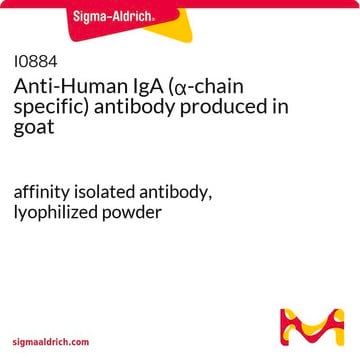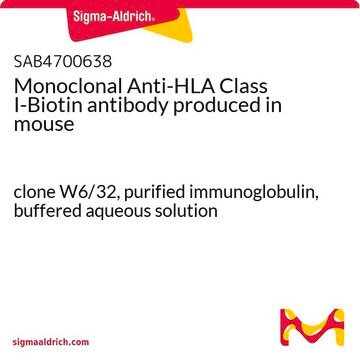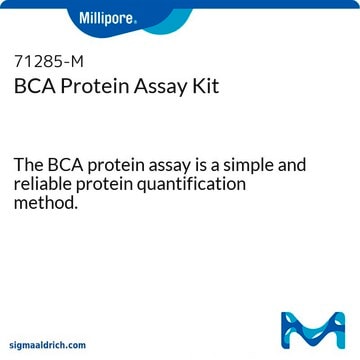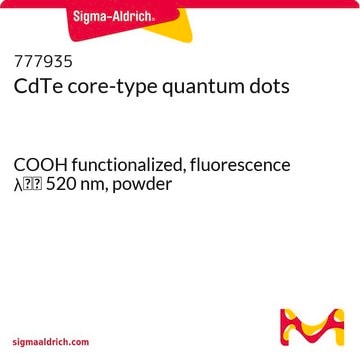CBL114F
Mouse Anti-Human IgA Antibody, clone M24A, heavy chain, FITC conjugated
clone M24A, Chemicon®, from mouse
Synonyme(s) :
Anti-human IgA FITC
About This Item
Produits recommandés
Source biologique
mouse
Niveau de qualité
Conjugué
FITC conjugate
Forme d'anticorps
purified immunoglobulin
Type de produit anticorps
secondary antibodies
Clone
M24A, monoclonal
Espèces réactives
human
Fabricant/nom de marque
Chemicon®
Technique(s)
ELISA: suitable
flow cytometry: suitable
immunofluorescence: suitable
immunohistochemistry: suitable
Isotype
IgG1
Conditions d'expédition
wet ice
Modification post-traductionnelle de la cible
unmodified
Spécificité
Application
Anticorps secondaires et anticorps de contrôle
Identification of surface IgA on B lymphocytes by direct Immunofluorescence.
Anticorps secondaires spécifiques d'un fragment
Forme physique
Stockage et stabilité
Informations légales
Clause de non-responsabilité
Vous ne trouvez pas le bon produit ?
Essayez notre Outil de sélection de produits.
Code de la classe de stockage
12 - Non Combustible Liquids
Classe de danger pour l'eau (WGK)
WGK 2
Point d'éclair (°F)
Not applicable
Point d'éclair (°C)
Not applicable
Certificats d'analyse (COA)
Recherchez un Certificats d'analyse (COA) en saisissant le numéro de lot du produit. Les numéros de lot figurent sur l'étiquette du produit après les mots "Lot" ou "Batch".
Déjà en possession de ce produit ?
Retrouvez la documentation relative aux produits que vous avez récemment achetés dans la Bibliothèque de documents.
Notre équipe de scientifiques dispose d'une expérience dans tous les secteurs de la recherche, notamment en sciences de la vie, science des matériaux, synthèse chimique, chromatographie, analyse et dans de nombreux autres domaines..
Contacter notre Service technique








